Improving AI Agent Actions Using Agent Knowledge Base
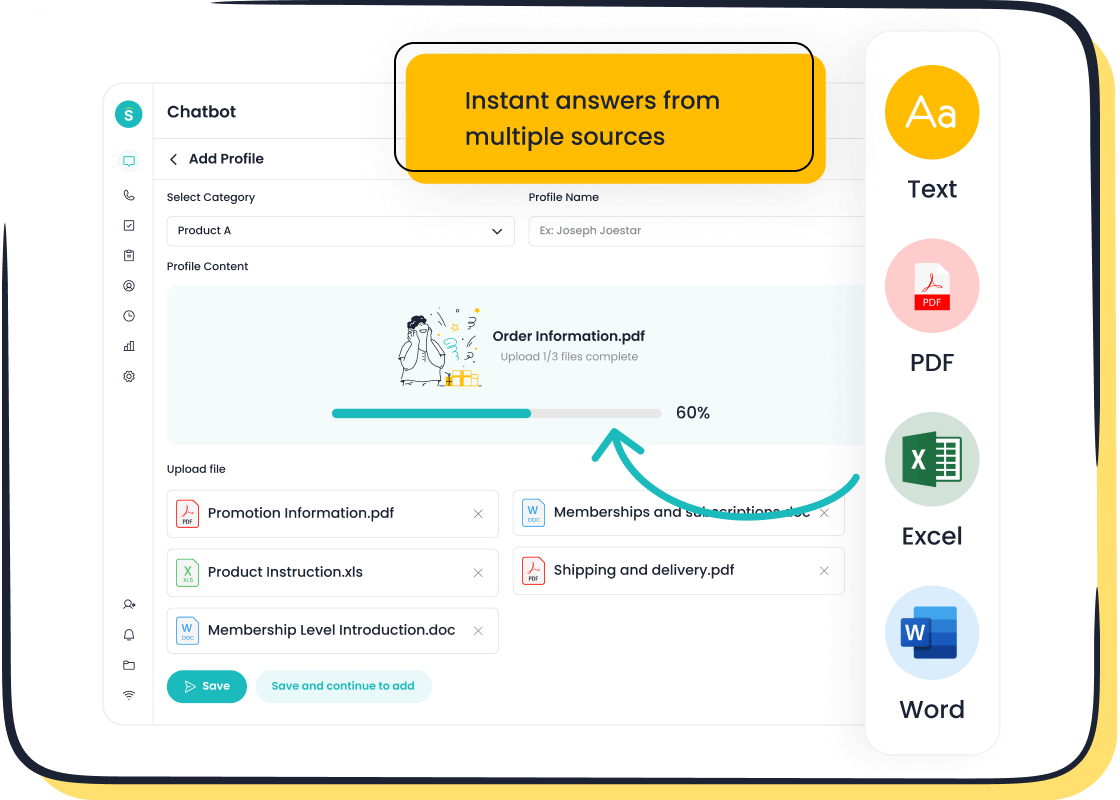
You can transform your customer service with an agent knowledge base and ai knowledge base. These tools help ai agents deliver fast, accurate, and consistent support. With instant search and real-time recommendations, agents find answers without delay. Customers enjoy quick solutions, while you see higher satisfaction and loyalty. Sobot AI and Sobot call center use advanced knowledge base technology, helping you track metrics like first call resolution and agent productivity. AI knowledge base systems also enable self-service, reduce workload, and offer personalized recommendations, making your support smarter and more efficient.
Agent Knowledge Base in Customer Service

Definition and Role
You need a strong foundation to deliver great customer service. An agent knowledge base gives you that foundation. This is a centralized, digital hub where you store all your important information. You can include user guides, FAQs, troubleshooting tips, glossaries, and even videos. Both your customers and your support team can use this resource to find answers quickly.
A knowledge base helps you in many ways. You can reduce customer service costs because customers can solve simple problems on their own. Your team spends less time answering the same questions. You also boost customer satisfaction because people get fast, accurate answers. You build trust and show your brand’s authority by offering reliable support.
When you use an ai knowledge base, you take things to the next level. AI makes the search process smarter. You can find the right answer in seconds, even if you do not know the exact words to use. AI-powered recommendations help you discover related topics or solutions you might not have thought about. This means your team can resolve issues faster and more accurately.
A well-structured agent knowledge base links directly to key customer service metrics. You see improvements in first-call resolution and a drop in average handle time. You empower your agents by giving them access to the best information. You also make sure your content stays up to date with regular reviews and analytics. The table below shows how an agent knowledge base improves your customer service outcomes:
| Role of Agent Knowledge Bases | Description and Impact on Customer Service Outcomes |
|---|---|
| Increased First-Contact Resolution | You give agents quick access to accurate, centralized information. This helps them solve problems faster and build loyalty. |
| Robust Self-Service Options | Customers use FAQs and guides to fix routine issues. Your agents can focus on more complex cases. |
| Consistent Customer Experiences | You deliver the same, correct information across all channels. This builds trust and loyalty. |
| Increased Customer Satisfaction | Agents provide faster, more personalized service. Customers feel happier and less frustrated. |
| Scalable Support Operations | You train new agents faster and handle more requests without hiring more people. |
| Actionable Customer Insights | You collect data from every interaction. This helps you predict needs and improve your service strategy. |
You can see that a knowledge base is not just a storage place. It is a tool that helps you deliver better, faster, and more consistent support. When you add AI, you make the system even smarter and more helpful.
Sobot Chatbot Integration
Sobot brings the power of an ai knowledge base to your customer service. You get a centralized knowledge base management system that both chatbots and human agents can use. This means your team and your customers always have access to the latest information.
With Sobot’s AI Chatbot, you use machine learning to improve responses over time. The chatbot learns from every interaction. It gets better at understanding questions and giving the right answers. You also benefit from advanced search features. The chatbot can quickly search the knowledge base and provide instant replies. If a question is too complex, the chatbot can send it to a live agent. This seamless handoff ensures your customers always get the help they need.
Sobot’s ai knowledge base supports integration with your CRM and other business tools. This allows you to offer personalized support. AI-powered recommendations guide your agents and customers to the best solutions. You can handle routine issues automatically, freeing your agents to focus on more challenging problems.
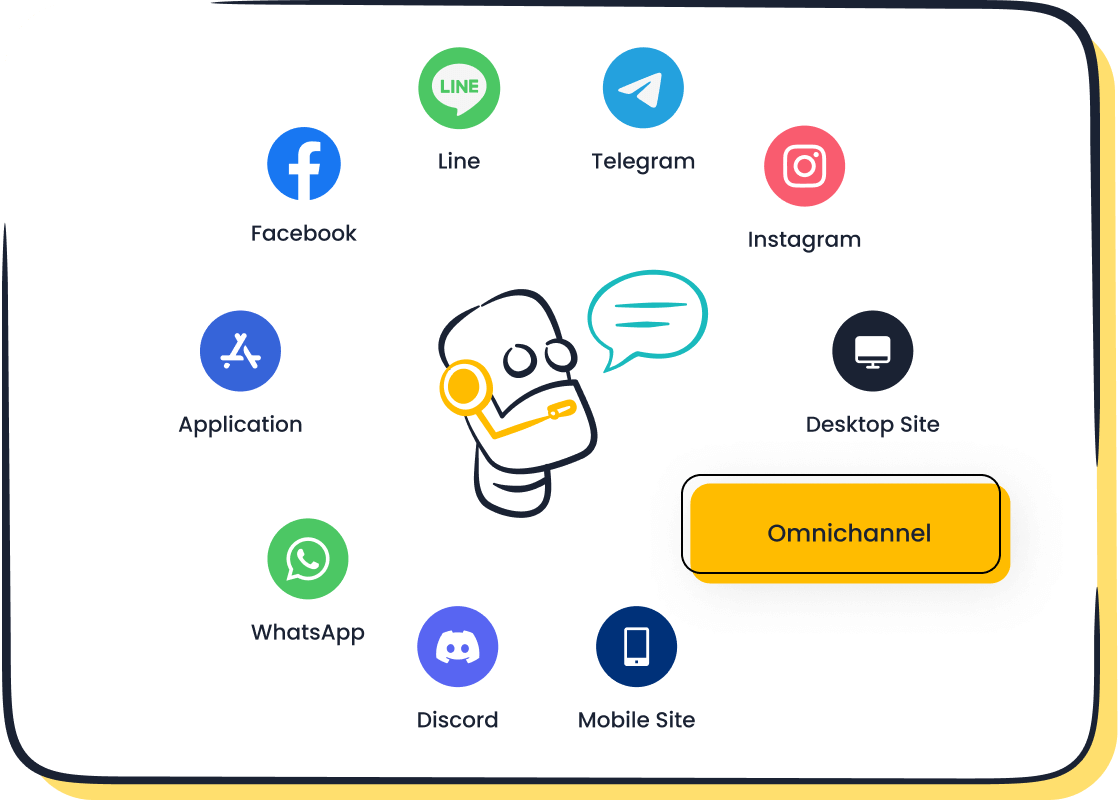
Let’s look at a real example. OPPO, a global leader in smart devices, used Sobot’s chatbot and ticketing system to improve its customer service. During busy shopping periods, OPPO faced a huge number of customer questions. By using Sobot’s ai knowledge base, OPPO automated answers for common questions. Human agents could then focus on more complex issues. Sobot also helped OPPO update its knowledge base, cutting maintenance work by 90%. The results were impressive:
| Metric | Improvement Achieved by OPPO after Sobot Integration |
|---|---|
| Chatbot Resolution Rate | 83% |
| Positive Feedback Score | 94% |
| Increase in Repeat Purchases | 57% |
You can see how Sobot’s ai knowledge base and chatbot work together to boost efficiency and customer satisfaction. OPPO’s story shows that you can handle high volumes of questions, keep your customers happy, and even increase repeat purchases.
Sobot’s solution gives you omnichannel support, multilingual capabilities, and easy integration. You can manage all your customer interactions in one place. You also get detailed analytics to help you keep improving your service. With Sobot, you use the full power of an ai knowledge base to deliver fast, accurate, and personalized support every time.
AI Knowledge Base Mechanisms
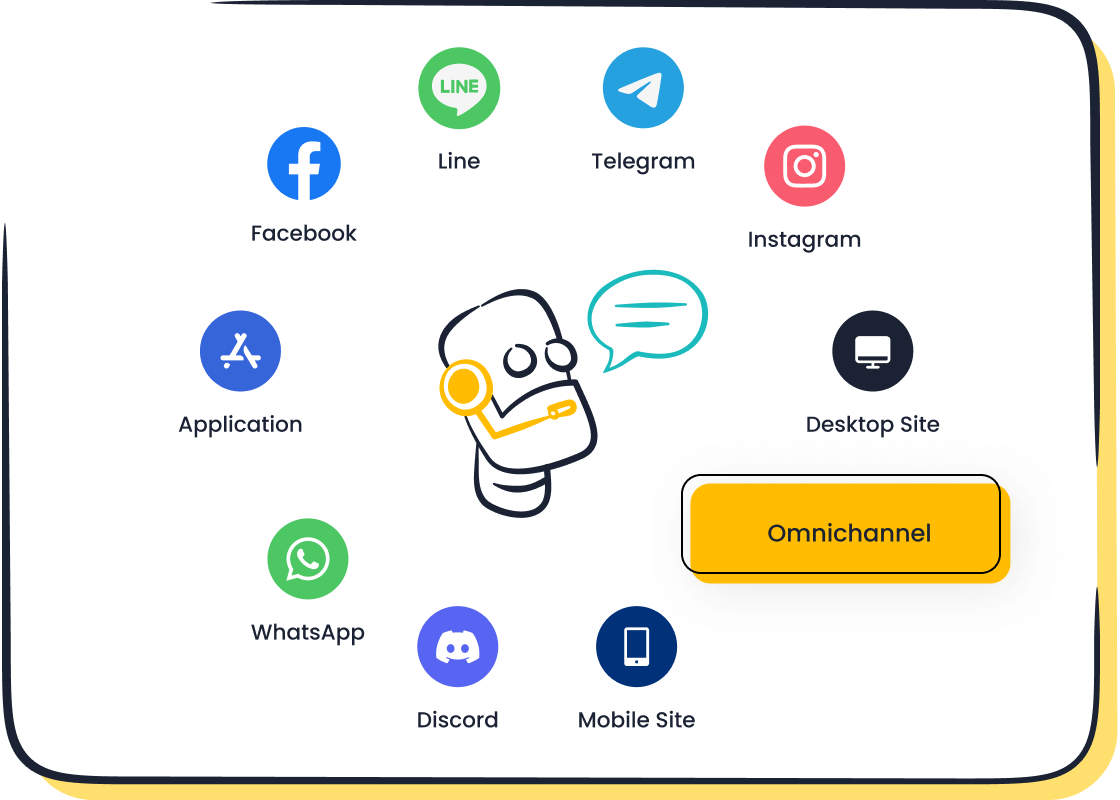
Advanced Search Capabilities
You need advanced search capabilities to unlock the full potential of an ai knowledge base. These features help you find information quickly and accurately, even when you use natural language or upload images. You can rely on advanced search capabilities to deliver user-centric search experiences that adapt to your needs.
- Natural language processing (NLP) lets you type questions in your own words. The ai knowledge base understands your intent and context, not just keywords.
- Personalized recommendations appear based on your past searches and interactions. You get relevant suggestions that match your preferences.
- Voice search gives you hands-free access to the knowledge base. You can speak your questions and receive instant answers.
- Visual search allows you to upload screenshots or images. The system finds related articles or guides using image recognition.
- Advanced filtering and sorting options help you narrow down results by relevance, date, or popularity.
- Real-time updates and notifications keep you informed about new or updated content.
- AI-generated summaries provide concise answers. You can ask follow-up questions for deeper exploration.
- Productivity features like auto-complete, spell-check, and query suggestions make your search faster and more accurate.
- Trend analysis of user search patterns helps keep the knowledge base current and relevant.
You benefit from these advanced search capabilities because they enhance search efficiency and accuracy. For example, companies like Siemens and Walmart use machine learning and semantic search to retrieve complex documents and product information quickly. This reduces the time agents spend searching and improves operational performance.
| Company | Advanced Search Feature Used | Impact on Agent Response Times and Efficiency |
|---|---|---|
| Siemens | Machine learning and natural language processing | Faster retrieval of complex technical documents, reducing search time and boosting productivity |
| Shell | Semantic search | More accurate and faster access to technical papers, streamlining workflows and improving decision-making |
| Unilever | Intelligent search for supply chain data | Quick access to inventory and supplier records, optimizing procurement and minimizing delays |
| GE | Contextual understanding in search | Real-time access to manuals and records, helping engineers resolve issues faster and reduce downtime |
| Walmart | Smart search system | Quick access to product info and inventory, improving inventory management and customer service |
You see that advanced search capabilities in an ai knowledge base reduce manual effort and speed up information retrieval. Features like chatbot integration, automated content suggestions, and context-aware search help you find answers without delay. These tools support knowledge management by keeping your repository organized and up-to-date. You also gain from user-centric search, which adapts to your needs and preferences.
Tip: Use advanced search capabilities in your ai knowledge base to improve agent response times and deliver faster, more accurate support.
Continuous Learning
Continuous learning is a key part of any ai knowledge base. You want your knowledge management system to adapt and grow as your business changes. The ai knowledge base uses several mechanisms to keep learning and improving over time.
- Memory-Augmented Neural Networks (MANNs) store and retrieve knowledge, helping the system remember important information.
- Experience Replay lets the ai knowledge base revisit past interactions, so it does not forget old tasks while learning new ones.
- Elastic Weight Consolidation (EWC) protects important knowledge, preventing the system from losing valuable information.
- Progressive Neural Networks add new networks for new tasks, keeping old knowledge safe.
- Meta-learning helps the ai knowledge base adapt quickly to new challenges.
- Lifelong learning systems expand and use knowledge distillation to keep growing.
- Self-supervised learning allows the ai knowledge base to learn from unlabeled data, making it more autonomous.
- Curiosity-driven exploration motivates the system to seek out new information.
These mechanisms support automated content generation and efficient knowledge management. The ai knowledge base can generate new articles, update old ones, and suggest improvements based on user feedback. You benefit from content freshness and reduced manual maintenance. The system uses analytics and data-driven insights to track usage and optimize content.
Continuous learning improves accuracy in customer service. The ai knowledge base learns from user interactions, feedback, and data inputs. Machine learning algorithms analyze customer behavior and queries, providing more personalized and contextually relevant responses. Regular updates based on feedback keep your knowledge base current and accurate. You can combine ai automation with human oversight to ensure content aligns with your business goals.
Note: Continuous learning in your ai knowledge base means your content generation stays relevant, accurate, and responsive to changing needs.
Reasoning and Decision-Making
Reasoning is what makes an ai knowledge base truly intelligent. You need your system to do more than just store information. It must help you make decisions and solve problems during customer interactions. The ai knowledge base uses several reasoning methods to support decision-making.
- Query resolution uses common-sense reasoning to interpret ambiguous or open-ended questions.
- Multi-turn dialogues allow the ai knowledge base to maintain context over several exchanges, handling complex conversations.
- Sentiment analysis helps the system assess customer satisfaction and prioritize responses.
The ai knowledge base supports different types of reasoning:
| Reasoning Type | Description | Application in Customer Service Scenario |
|---|---|---|
| Rule-based Reasoning | Uses predefined logical rules to make decisions. | Handles clear, consistent rules such as automating compliance or query resolution. |
| Probabilistic Reasoning | Employs statistical models to manage uncertainty and predict outcomes. | Predicts customer behavior, product issues, or churn, aiding decision-making under uncertainty. |
| Semantic Reasoning | Understands context and meaning using ontologies or knowledge graphs. | Enables nuanced understanding of customer queries and context-aware responses. |
| Hybrid Reasoning | Combines multiple reasoning techniques (e.g., rule-based + probabilistic) for complex tasks. | Balances logical consistency with data-driven insights for dynamic customer service interactions. |
The ai knowledge base uses a repository of structured facts, rules, and information. An inference engine applies logical reasoning and probabilistic models to derive conclusions. Interfaces and APIs connect the ai knowledge base to chatbots, ai copilots, and other decision support systems. This architecture enables dynamic, accurate decision-making, even with limited data.
You can see how ai copilots use these reasoning methods to assist agents. They surface relevant articles in real time, provide next-best-action recommendations, and reduce cognitive load. Real-time transcripts, generative AI summaries, and intent-based search help agents focus on problem-solving. Manager Assist features give supervisors live visibility and coaching tools. These capabilities empower your team to handle complex calls with confidence.
Tip: Use ai knowledge base reasoning and decision-making features to improve accuracy, enhance customer experience, and support your agents with data-driven insights.
AI Agents and Knowledge-Based Agents
Human-Machine Collaboration
You see a big difference between traditional ai agents and knowledge-based agents. Traditional ai agents follow fixed rules and scripts. They react to your commands but cannot adapt or make decisions on their own. Knowledge-based agents use an ai knowledge base and inference engines. They reason over information, learn from new data, and make logical decisions you can trace back to clear rules. This makes knowledge-based agents much better at handling complex customer service tasks.
When you use knowledge-based agents, you unlock true human-machine collaboration. These ai agents work with you, not just for you. In customer service, ai agents handle routine questions using the ai knowledge base. You focus on complex issues that need empathy or creative thinking. This teamwork boosts efficiency and lets you deliver better service.
- In retail, ai agents monitor inventory and adjust prices. You spend less time on routine tasks.
- In customer service, ai agents answer common questions. You step in for special cases.
- In finance, knowledge-based agents automate loan approvals and fraud checks. You review only the most important cases.
- In manufacturing, ai agents predict maintenance needs. You prevent costly downtime.
Research shows that when you and ai agents work together, customer satisfaction goes up. Coordination between humans and ai agents leads to smoother service and happier customers. You get to focus on what you do best, while ai agents handle the rest.
Personalized Customer Interactions
Knowledge-based agents powered by an ai knowledge base help you create personalized experiences for every customer. These ai agents use real-time data, CRM integration, and smart decision support to tailor each interaction. You can trust ai copilots to suggest the best answers based on customer history and context.
| Feature/Capability | Description | Impact/Result Example |
|---|---|---|
| CRM Integration | Syncs with CRM for instant, accurate customer data. | Cuts costs by 60%, boosts sales-qualified leads by 60%. |
| Real-time Decision Support | Gives agents actionable suggestions during calls. | Reduces errors by 50%, raises satisfaction by 27%. |
| Automation of Calls | Handles inbound and outbound calls using structured knowledge. | Cuts manpower by 90%, improves collection rates by 21%. |
| Personalized Interaction | Analyzes real-time inputs for tailored responses. | Builds trust and loyalty with fast, accurate help. |
| Consistency Across Channels | Keeps messaging unified on phone, chat, email, and social media. | Strengthens brand and reduces confusion. |
You see ai copilots use the ai knowledge base to deliver accurate, relevant content. They keep your voice consistent across all channels. You get faster, smarter service because ai agents automate information retrieval and decision-making. Data from different systems comes together, giving you a full view of each customer. The ai knowledge base updates itself, so your information stays fresh and trustworthy.
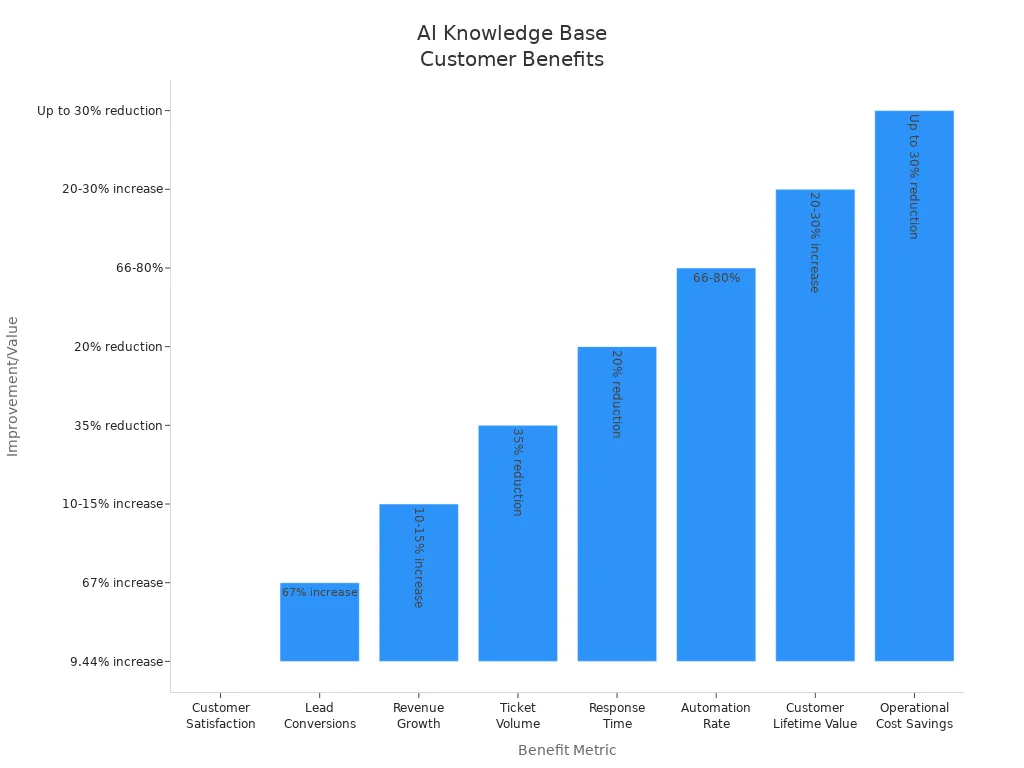
Personalized experiences powered by ai agents and ai copilots lead to real business results. You can increase customer satisfaction by over 9%, boost lead conversions by 67%, and grow revenue by up to 15%. You also reduce ticket volume and response times, making your support team more efficient. Companies like Sephora and Amazon use ai knowledge base systems to deliver personalized experiences that drive loyalty and sales. Klarna’s ai agents handle the work of hundreds of people, cutting costs and speeding up service.
With knowledge-based agents and ai copilots, you give every customer the attention they deserve. You build trust, improve efficiency, and create personalized experiences that set your brand apart.
Optimizing Performance with Sobot
Efficiency and Cost Reduction
You want your customer service team to work smarter, not harder. Sobot’s AI Agent and Voicebot help you achieve this by resolving over 50% of customer interactions independently. This means your human agents can focus on tasks that need more attention, leading to a clear improvement in overall performance. Sobot’s platform brings together multiple communication channels, such as websites, apps, social media, calls, and SMS. You get seamless service and faster responses.
- Sobot’s AI Copilot suggests replies and drafts summaries for agents, boosting productivity.
- Advanced Large Language Models (LLMs) power Sobot’s AI, delivering human-like responses and improving resolution rates.
- Automating half of 50,000 monthly support conversations can save you about $6,250 in customer service costs.
You see a direct impact on efficiency and cost reduction. Sobot’s knowledge base, powered by AI Copilot, reduces agent workload by 60%. You get faster issue resolution and a 15% increase in conversion rates. The platform’s centralized data and tools allow you to manage outreach and automate responses, further improving performance.
| Metric | Impact/Value | Explanation |
|---|---|---|
| Agent Workload Reduction | 60% | AI Copilot reduces repetitive tasks, improving productivity and performance. |
| Conversion Rate Increase | 15% | Personalized experiences boost conversions and performance. |
| Resolution Time | Under 1 minute | Faster issue resolution improves customer satisfaction and performance. |
| Net Promoter Score (NPS) | 35% improvement | Enhanced experiences lead to higher satisfaction and performance. |
| Return on Investment (ROI) | 234% | Streamlined workflows maximize ROI and performance. |
| Omnichannel Integration | Centralized data & tools | Proactive outreach and automated responses improve productivity and performance. |
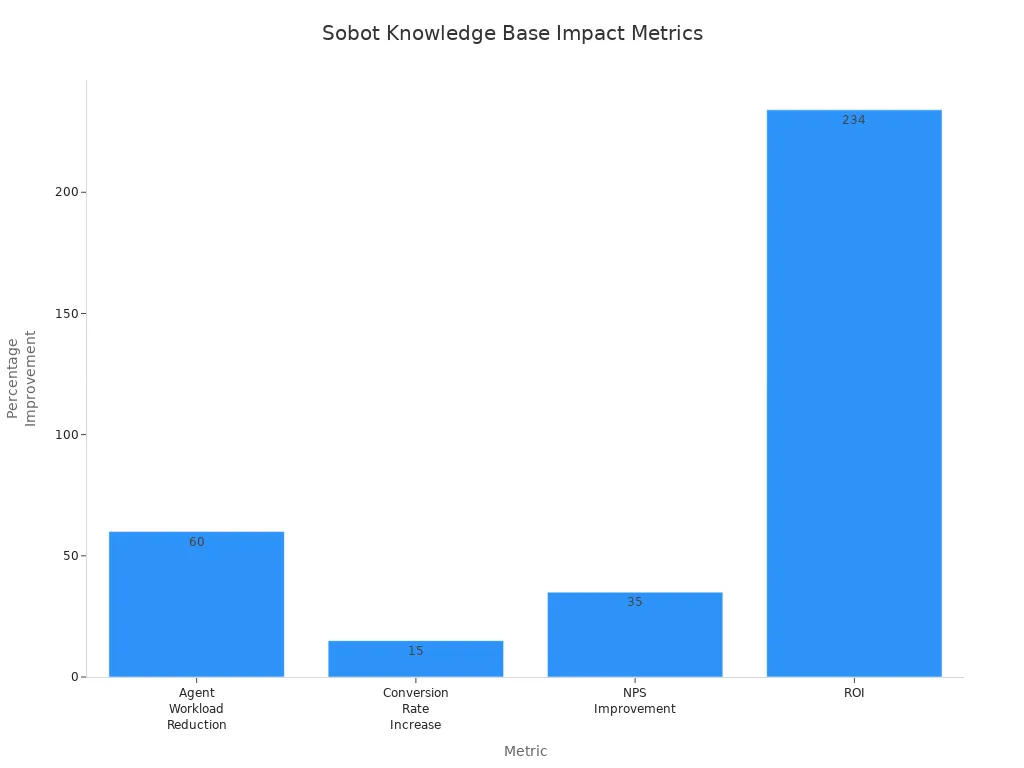
Enhanced Customer Experience
You want every customer to feel valued. Sobot’s upgraded AI Agent supports online text, voice calls, and email ticketing, giving you true omnichannel service. The AI Agent uses advanced NLP and LLM technologies for natural, human-like communication. You can role-play and imitate tones, making conversations more engaging.
- Sobot’s multilingual capabilities let you use one knowledge base across many languages. You save time and reduce workload.
- The AI Agent manages inquiries and updates the knowledge base, increasing response rates by 15%-35% and answer accuracy by 5%-15%.
- Human agents and AI work together, balancing efficiency with a personal touch.
Renogy, a global company, saw a 35% increase in direct response rate, 27% improvement in response accuracy, and a 90% reduction in knowledge base operation workload after adopting Sobot. You benefit from faster, more accurate, and contextually relevant responses. Customers get solutions quickly, and your team can focus on complex issues. This leads to higher satisfaction scores and better overall performance.
| Aspect | Evidence Detail |
|---|---|
| Knowledge Base Automation | AI Agent extracts Q&A pairs and updates the knowledge base, reducing costs and improving performance. |
| Performance Improvements | 15%-35% increase in direct response rate; 5%-15% improvement in answer accuracy. |
| Operational Efficiency | Up to 80%-90% reduction in knowledge base workload, boosting performance. |
| Multilingual Support | One knowledge base works across languages, improving international performance. |
| Impact on Customer Satisfaction | Faster, accurate responses improve experience and performance. |
Tip: Use Sobot’s omnichannel and multilingual features to maximize your customer service performance and deliver consistent improvement.
Implementation and Challenges
Data Quality and Security
You face several challenges when you implement AI knowledge management in retail and ecommerce. Managing large volumes of data often leads to errors, inconsistencies, and gaps. These issues can go unnoticed and affect your results. You must handle data from many sources and formats, making consistency and compatibility important. Bias in data can cause unfair outcomes, so you need to monitor and address it. Privacy and security are top concerns, especially with strict regulations like GDPR and CCPA. You must keep data current and relevant to maintain accuracy.
To protect your data, you should use strong authentication, encryption, and access controls. Sobot’s platform builds security into its design. It aligns with global and local regulations and holds international security certifications. Regional data centers in the U.S., Europe, and Asia help you meet compliance needs and ensure performance. Sobot’s Secure AI pillar focuses on privacy and compliance, so your knowledge management stays safe and trustworthy.
Integration with Existing Systems
You want your AI knowledge management system to work smoothly with your current tools. Integration and optimization can be complex, especially in retail and ecommerce. You need to connect diverse data sources and ensure your infrastructure can scale. Sobot supports integration with CRM, chat, voice, and social media channels. This allows you to unify customer data and streamline workflows.
Best practices include using AI to identify knowledge gaps, draft new articles, and provide instant support through chatbots. You can use AI analytics for data-driven insights, predict customer needs, and improve service quality. Multilingual support and voice AI help you serve a global audience. Organize your knowledge base with clear categories and customer-centric language to make information easy to find.
Continuous Optimization
Continuous optimization is key to effective knowledge management. Sobot uses machine learning to analyze customer interactions and improve over time. You should review content regularly, collect feedback, and audit for gaps. Assign ownership for updates and use analytics to spot underperforming content. Sobot’s approach to continuous optimization can boost accuracy by over 20%. You measure performance with KPIs like resolution rate, customer satisfaction, and time saved. This ongoing process helps you adapt to changing needs and keeps your knowledge management system effective.
You can achieve real improvement in customer service by using an ai knowledge base. Sobot’s solutions help you deliver instant answers, boost agent performance, and keep your support consistent. To see the best improvement, follow these steps:
- Set clear goals for your ai knowledge base.
- Organize data for easy access and accuracy.
- Train AI agents with the latest technology.
- Test and update your system for ongoing improvement.
- Choose software with real-time recommendations and strong integration.
With an ai knowledge base, you speed up self-service, reduce agent workload, and make recommendations that drive improvement. You also get recommendations for faster training and better content. Explore Sobot’s Chatbot and AI platform for scalable support, smart recommendations, and continuous improvement.
FAQ
What is an agent knowledge base?
An agent knowledge base is a digital library that stores guides, FAQs, and troubleshooting tips. You use it to help agents and customers find answers quickly. This tool improves customer service and boosts satisfaction.
How does an ai knowledge base improve customer support?
You get instant, accurate answers with an ai knowledge base. AI searches information fast, learns from interactions, and updates content automatically. This helps you resolve issues quickly and keeps your support consistent.
Can Sobot’s AI Chatbot handle multiple languages?
Yes! Sobot’s AI Chatbot supports many languages. You can serve customers worldwide using one knowledge base. This feature saves you time and makes your support team more efficient.
How does Sobot integrate with my existing systems?
You connect Sobot to your CRM, chat, voice, and social media channels. This integration lets you manage customer data in one place. You streamline workflows and improve service quality.
Is my data safe with Sobot’s ai knowledge base?
Sobot uses strong security measures like encryption and access controls. You meet global standards such as GDPR. Your data stays private and protected while you use Sobot’s ai knowledge base.
See Also
Evaluating Artificial Intelligence Options For Enterprise Call Centers
Comprehensive Handbook For AI Software In Call Centers
Best Ten Artificial Intelligence Tools For Contact Centers
